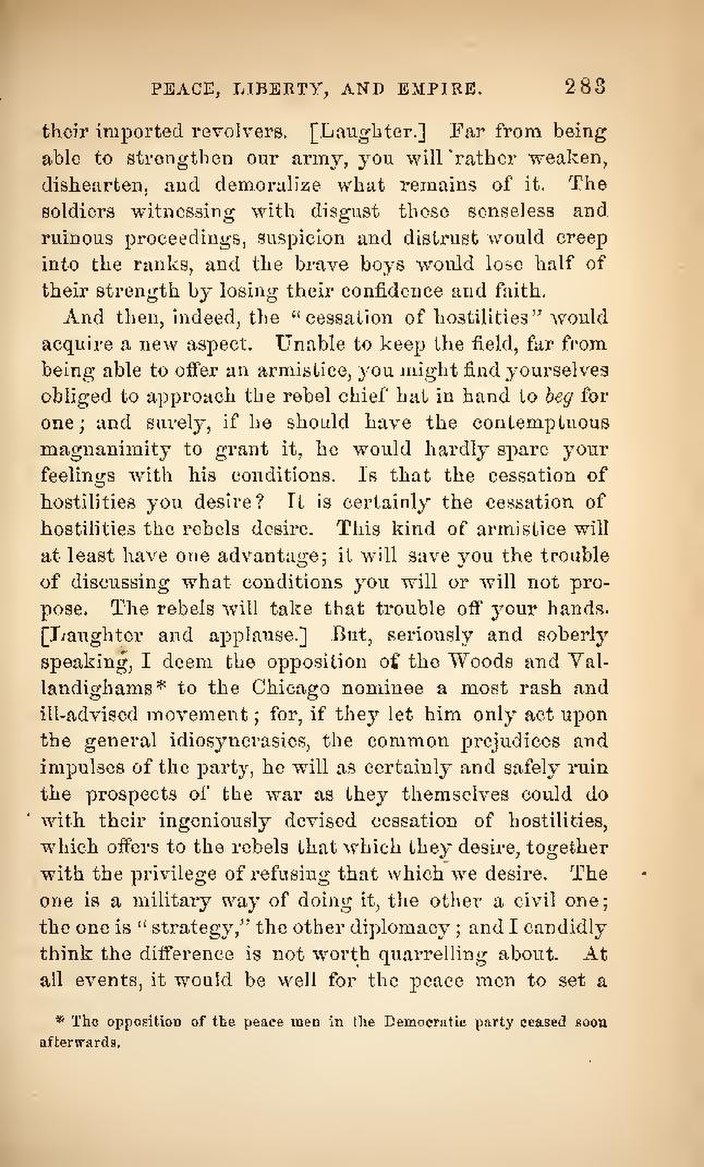their imported revolvers. [Laughter.] Far from being able to strengthen our army, you will rather weaken, dishearten, and demoralize what remains of it. The soldiers witnessing with disgust these senseless and ruinous proceedings, suspicion and distrust would creep into the ranks, and the brave boys would lose half of their strength by losing their confidence and faith.
And then, indeed, the “cessation of hostilities” would acquire a new aspect. Unable to keep the field, far from being able to offer an armistice, you might find yourselves obliged to approach the rebel chief hat in hand to beg for one; and surely, if he should have the contemptuous magnanimity to grant it, he would hardly spare your feelings with his conditions. Is that the cessation of hostilities you desire? It is certainly the cessation of hostilities the rebels desire. This kind of armistice will at least have one advantage; it will save you the trouble of discussing what conditions you will or will not propose. The rebels will take that trouble off your hands. [Laughter and applause.] But, seriously and soberly speaking, I deem the opposition of the Woods and Vallandighams[1] to the Chicago nominee a most rash and ill-advised movement; for, if they let him only act upon the general idiosyncrasies, the common prejudices and impulses of the party, he will as certainly and safely ruin the prospects of the war as they themselves could do with their ingeniously devised cessation of hostilities, which offers to the rebels that which they desire, together with the privilege of refusing that which we desire. The one is a military way of doing it, the other a civil one; the one is “strategy,” the other diplomacy; and I candidly think the difference is not worth quarrelling about. At all events, it would be well for the peace men to set a
- ↑ The opposition of the peace men in the Democratic party ceased soon afterwards.
